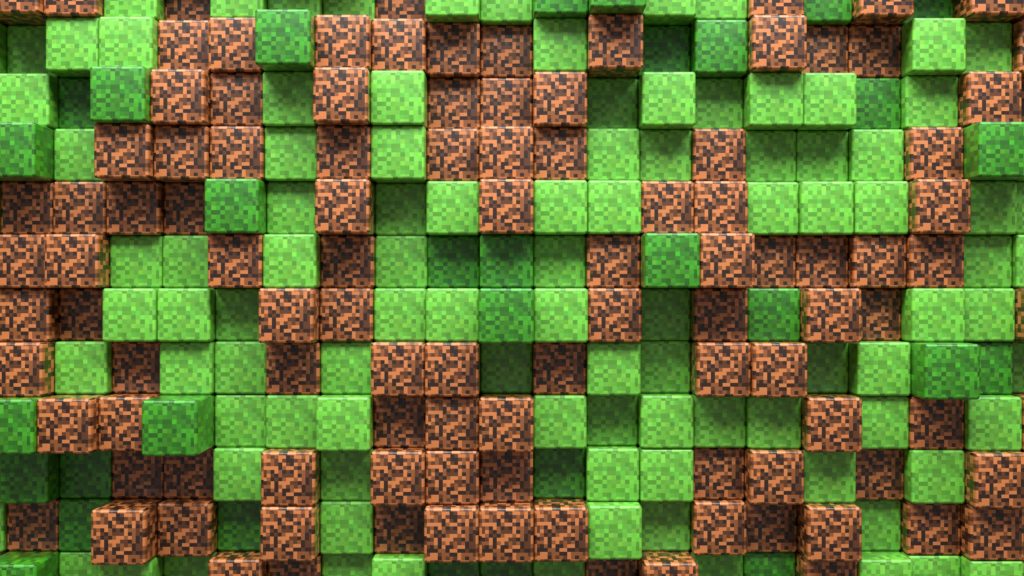
Originally posted on 10/17/10 on Mrrrdev.
So what’s so life-changing about Minecraft?
It’s not the game itself. The graphics are blocky (though this is a part of the game’s style), the sounds are simple, there isn’t much in terms of music, and there’s no objective to work towards besides “don’t die.” The game isn’t even complete yet; the current version is still in “alpha.”
Don’t get me wrong, the game is a lot of fun to play. For every block of terrain you see, you can destroy it and place it somewhere else. In the simplest sense, this means you can carve an impromptu shelter on the side of a hill and seal yourself in. On the other end of the spectrum, you can create architectural masterpieces. Without any preconceived objective, you end up creating your own. After doing some wandering away from my oceanside home in the game, I decided that I wanted to see the bottom of the world. I spent a few hours chiseling through the rock below my foyer, breaking pickaxe after pickaxe, ever digging. Eventually, I hit bedrock, an indestructible block denoting the game-imposed deepest depth, and my journey was complete. Well, not quite. Now that my first made-up objective was complete, I went with the next logical step: build a mine cart track from the top of the pit down to the bottom. After whizzing down a few times, I funneled a waterfall down my hole into a custom-built fountain base. Then I decided to burrow horizontally at the bottom of the hole to see what I run into. Why do all this? Because I can.
So what about that game caused my life to change? One man created it and has earned more than €4,200,000 to date after a year and a half of developing the game. He became a millionaire for deciding to make a simple, yet accessible game, which isn’t even done yet. In truth, he lucked out that people in the public view fell in love with the game and wrote about it, causing the mass of readers to investigate and subsequently fall in love with it, but luck is sometimes a factor in success. Through word of mouth and word of internet, the game’s popularity took off.
I had heard for years about people starting their own game companies from the ground up, but the thought of negotiating with publishers to create the physical product to sell was not appealing to me; I enjoy the design and development side of things, not the business side. I had also known about digital distribution since college when I first started using Steam at the release of Half Life 2. Even when I saw other indie game companies consisting of small groups of people releasing their games digitally, the whole thing still seemed too large for me. I saw it all as something to look into in the future, but just put that thought on the shelf for the time being.
When I read about Minecraft’s history and success, my perceptions were shattered. It seemed too simple: one man working on a game in his free time, one simple, incomplete game, one web server for user authentication, and one PayPal account. Was I missing something? Was it really this simple?
I realized that the major road block in the way of my spiritual calling was no longer there. I did not have to join a large game development company. I did not have to work sixteen hours a day, seven days a week, for months on end. I did not have to sacrifice my home life to pursue my dream. I saw the path so clearly: create something enjoyable and sell it digitally. And just to be clear, it’s not because of money that I’m excited about this. It’s that if it works, I could at least make a living doing what I love and working on something that which furthers the kingdom of God, and since I can begin down this path in my free time, I can start at any time.
So I did. And that’s what this blog will follow.
Hello, my name is Matt, and I’m an indie game developer. Wish me luck!